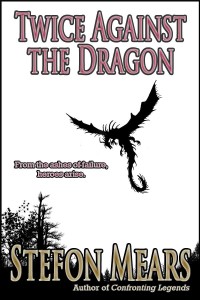Redemption and Fantasy
The hero (or heroine) arises out of nowhere, often from humble beginnings. The farm boy. The scullery maid. The bastard. Et cetera. Sometimes the Chosen One, and sometimes just the right person at the right time.
Then comes the quest. Allies are found. Enemies reveal themselves. Obstacles oppose. And in the end, evil is vanquished and good triumphs.
That – in very short form – is the essence of Joseph Campbell’s Hero’s Journey. You’ve probably heard of it. You may have read about it. Goodness knows it’s been analyzed, dissected and more over the years. It’s also been lauded as the ultimate storytelling form and vilified as the downfall of modern fiction.
Like most things, the truth lies somewhere in between. But what I think is most significant about the Hero’s Journey is that it’s pretty much always the first attempt for the characters in the story. If the goal is to overthrow the evil despot, then we might find out about the hundreds who have tried in the past and failed, but we won’t read about their attempts.
In fact, the story about a hero or heroine who succeeds often includes mention of those who failed, even when the story structure has nothing to do with Campbell. For example, the folk tale “Sleeping Beauty” has to be stretched and twisted to try to fit it into Campbell, but still we hear about the princes who tried and failed to rescue the cursed princess before we meet the one who succeeds.
Failure is a traditional part of the background of fantasy stories. Not the foreground. Past heroes failed, not the heroes we’re reading about now.
I thought about that, and I decided it wasn’t fair.
Why should the new heroes have all the fun? Why can’t we have heroes who have failed? Who stood against nigh-impossible odds and didn’t measure up? What happens to them after their great failure?
And most of all, do they ever have a chance to redeem themselves of their great failure? We have many characters in many stories who must redeem themselves for the evil they have done, but few have ever focused on the characters who have failed their chance to be heroes, much less seen them have a chance at redemption.
That was the driving concept behind my new novel Twice Against the Dragon. I took three characters and forced them to survive the greatest failures they could imagine. Failures that shook them to the core of their identities. All with an eye toward giving them a chance to redeem themselves.
Larek, a wizard who failed in his attempt to slay the dragon Blackflame. The weight of hundreds of deaths lies on his shoulders. Dyrra, a warrior who not only feels responsible for the death of her beloved, but also the weight of her failure to save an innocent family from a foul fate. Sindra, a healer who lost faith when her patients needed her the most.
Three failures seeking to put their pasts behind them. Three failures, who find one chance at redemption. Twice Against the Dragon.


